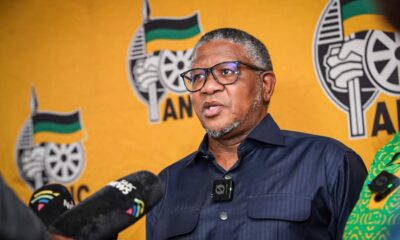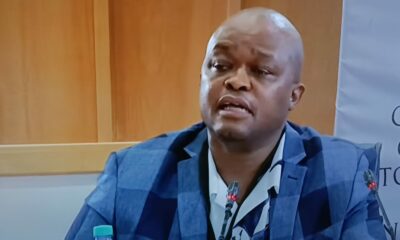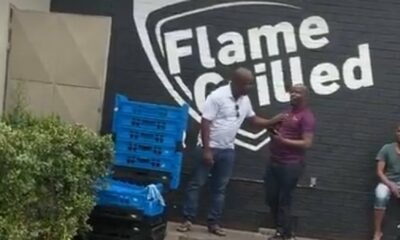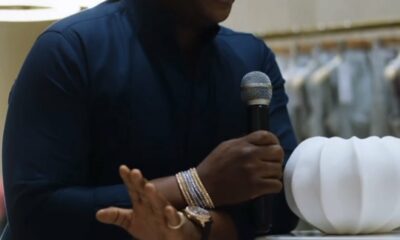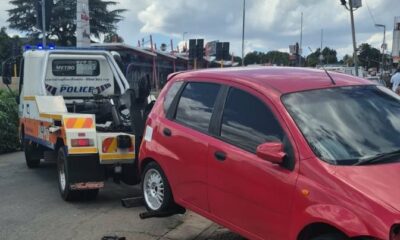News
Tshwane’s City Hall in Diplomatic Crossfire: Iran’s Proposal Sparks Controversy
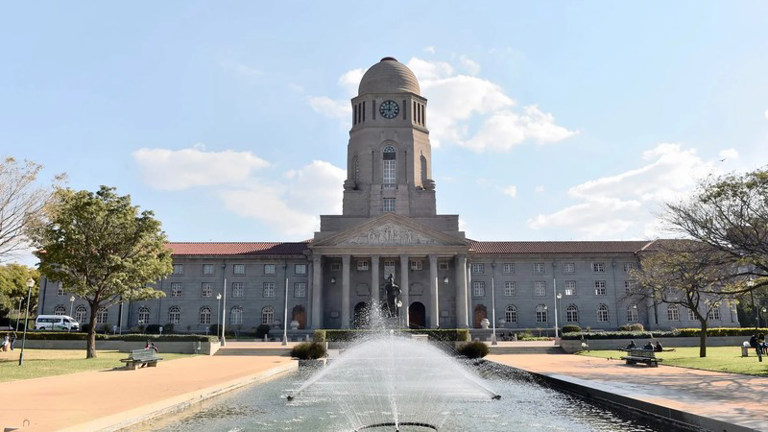
Tshwane’s City Hall in Diplomatic Crossfire
Iran’s proposal to repurpose Pretoria’s historic city hall stirs political tensions and questions of national loyalty
The iconic yet crumbling Tshwane City Hall, dormant for over a decade, is once again in the spotlight, this time, not for local refurbishment or heritage revival, but due to interest from a surprising suitor: the Islamic Republic of Iran.
The Iranian embassy has proposed converting the old hall into a bustling cultural hub, complete with a library, cinema, museum, restaurant and handcraft shops. It’s a vision that blends soft diplomacy with cultural exchange, but not everyone is convinced. In fact, the idea has thrown Tshwane’s leadership into the middle of a heated debate over diplomacy, transparency, and national identity.
A Letter, A Tour, and a Storm of Questions
It all started with a formal letter received on 9 May by the City of Tshwane from the Iranian embassy’s cultural consulate. The letter requested a permanent space in the capital for a cultural complex. As part of exploratory steps, city officials hosted a tour of the abandoned city hall on 28 May.
Tshwane MMC for Corporate and Shared Services Kholofelo Morodi clarified that nothing has been decided. “These interactions remain entirely exploratory,” she said, adding that no lease agreements, funding mechanisms, or site decisions have been finalized.
In fact, she noted, the embassy had requested to view other sites too, indicating the city hall was merely one of several options under consideration.
But the mere possibility of such a deal has already sparked an outcry.
City Hall or International Handshake?
While some see the proposal as an opportunity to breathe life into a neglected civic treasure, others, like DA Tshwane caucus leader Cilliers Brink, smell danger.
Brink dismissed the idea as a veiled attempt to “gift” public property to a foreign government with a questionable human rights record and minimal investment footprint in South Africa. “Iran has a far stronger relationship with the ANC than it does with the South African people,” Brink said. “Their offer is dubious at best.”
His concerns aren’t just political theatre. Tshwane, he argues, is situated at the heart of South Africa’s vital automotive industry, heavily tied to U.S. trade interests. With Iran’s geopolitical tensions with the U.S., he believes this proposal risks souring an already fragile relationship between Pretoria and Washington.
What’s Really at Stake?
At the centre of this storm is a deeper, ongoing challenge: how does Tshwane revitalize its underutilized heritage buildings while balancing political optics and economic strategy?
Morodi explained that the city is actively seeking partners to invest in these dormant properties—not just embassies, but universities, private developers and investors. This is all part of the city’s inner-city regeneration drive aimed at stimulating the economy and fixing a cash-strapped budget.
It’s worth noting that Pretoria is no stranger to diplomatic interest. As South Africa’s administrative capital, it hosts more than 100 embassies. It’s also a city known for its rich diplomatic history, but that legacy now finds itself in conflict with the political complexity of modern international relations.
Public and Expert Concern Over Transparency
The public reaction has been swift and sceptical. Social media threads are littered with questions about why the city is even entertaining the idea without broader consultation.
Political analysts have added their voices too. Rene Oosthuizen stressed that “transparency and rigorous oversight” are crucial when foreign entities are involved in municipal decisions. Piet Croucamp warned that any public deal with Iran could stir diplomatic controversy, especially given Iran’s strained relations with the West.
Cultural Centre or Political Minefield?
On the surface, Iran’s proposal might seem like an innocuous cultural investment. But behind it lies a confluence of domestic politics, global alignments, and questions about who gets to shape the future of South Africa’s capital city.
With no deal signed and plenty of public pressure mounting, Tshwane’s leadership faces a delicate balancing act. They must navigate economic pragmatism without sacrificing diplomatic integrity or public trust.
For now, the city hall remains silent. But as this story unfolds, it may become more than just a building, it may be a symbol of how Tshwane chooses to stand in the world.
{Source: The Citizen}
Follow Joburg ETC on Facebook, Twitter , TikTok and Instagram
For more News in Johannesburg, visit joburgetc.com

